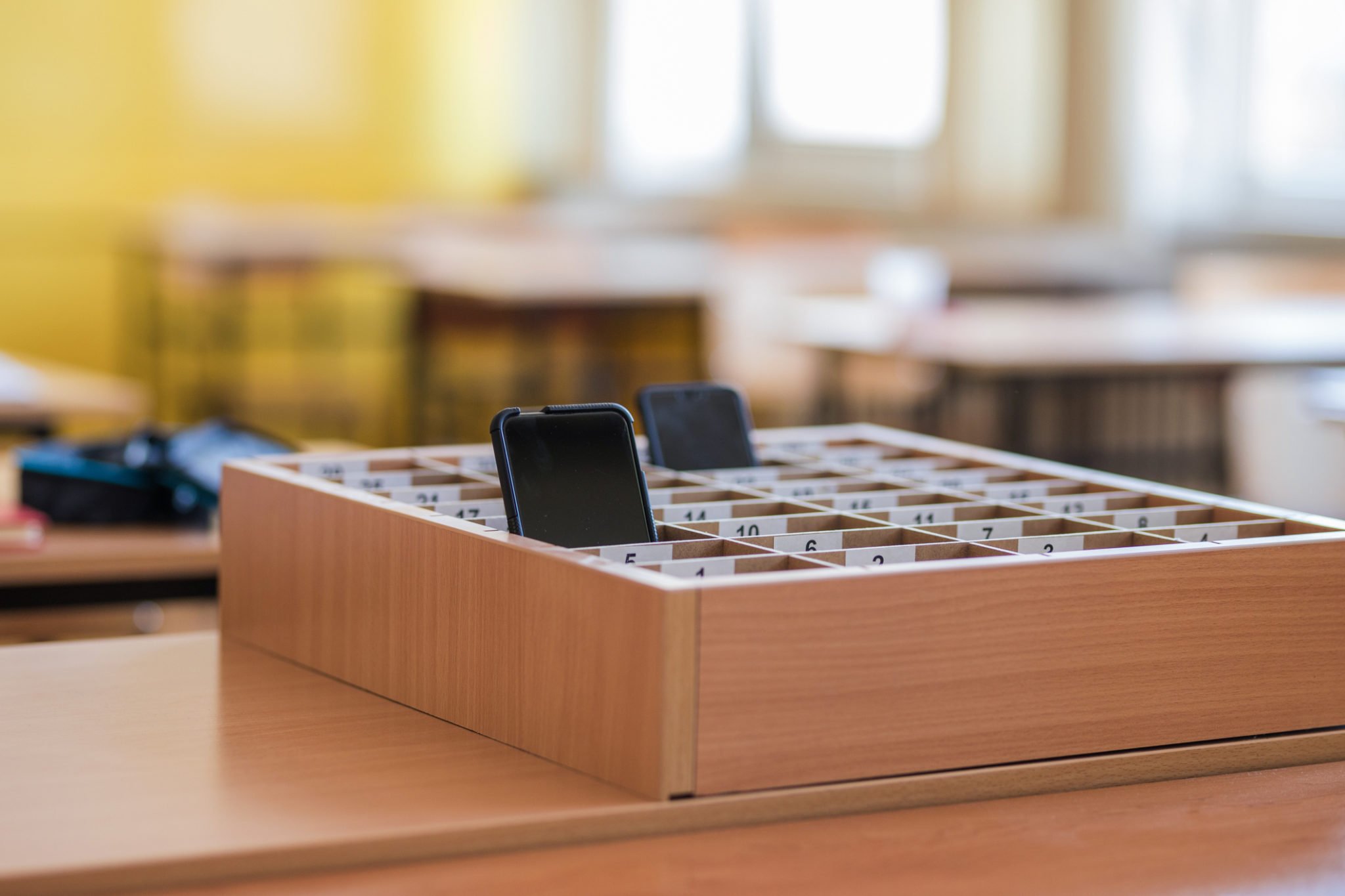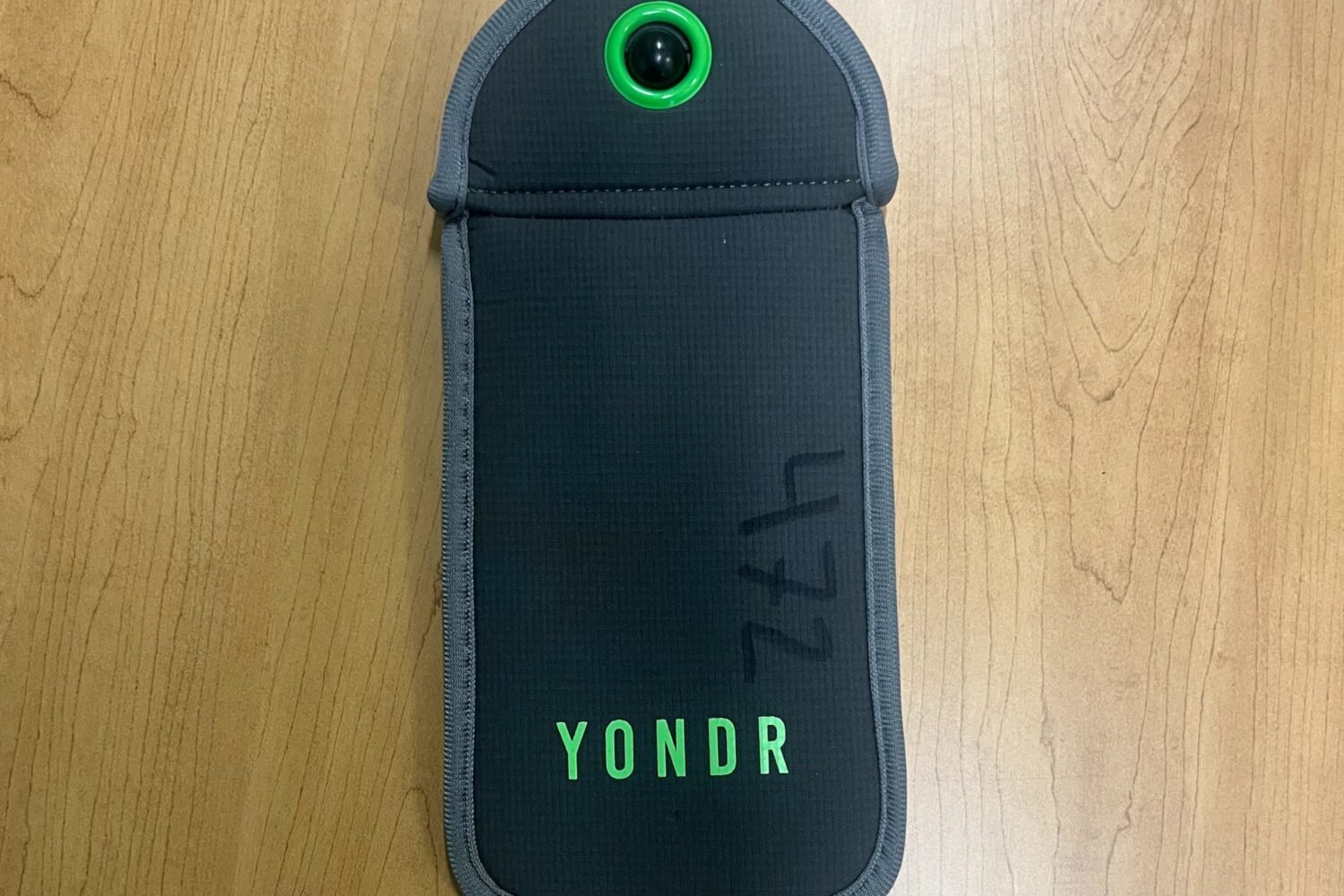Local proponents of phone-free schools got two victories Thursday night. The board of Arlington Public Schools approved a new policy that requires elementary and middle-school students to keep phones off and away during the entire school day and high school students to keep them off and away during instructional time. The same day, the Virginia Department of Education issued its own proposal for cell phone bans in schools statewide, which calls for bans for all students, all day long.
Arlington Superintendent Francisco Durán says the new directive from his office, which is a stand-in for a more detailed long-term policy coming from the county school board in December, codifies what many schools have already been doing.
“It was a school-by-school situation where each school has developed their own way of how they approach it,” says Durán. “We had a lot of feedback from teachers, from principals, asking us to please give some guidance.”
Arlington is the latest jurisdiction to hop aboard a national fervor for restricting students’ exposure to cell phones. Six Virginia counties, including Fairfax, have already passed stricter bans for the new year. A few Maryland counties are also cracking down on phones, but there’s no high-level effort yet to do so in DC.
Some of the bans, including Arlington’s, originated before Governor Glenn Youngkin in July instructed his education department to crack down on phones. When the final state guidance is released (after a public comment period) in September, it will ask districts to bring their own rules in line by January 1. At Thursday’s board meeting, Durán said his team will ensure compliance with the state guidance as they work on the permanent Arlington policy.
The movement to get phones out of kids’ hands has picked up steam this year, and teachers and parents are generally united in favor of it.
Liza Schalch, a former Arlington teacher who cofounded DMV Unplugged, an organization advocating to get cell phones—and screens in general—out of schools, sees Arlington’s new directive and the governor’s order as progress. But she’s concerned that the high school part of the Arlington policy doesn’t go far enough.
“The entire school day is instructional time for students,” says Schalch. “They’re learning not just about math, they’re learning how to interact with their peers and adults. To be able to have phones during breaks assures the continuation of a phone-centric student culture. And to me, that’s unacceptable.”
At the Arlington board meeting, members of the public spoke up to both affirm the directive and urge that the eventual policy also bans phones for high schoolers all day.
Jack Couture, 18, graduated from Washington-Liberty High School in Arlington this year. He says he frequently saw other students on their phones during class even while doing so was technically banned. But, he notes, a “bell-to-bell” ban for high schoolers would cut off communication with parents—his own family’s reason for giving him a phone in the first place.
“I think they would be glad for me to be off social media during school, when I could be productive, but a lot of digital communication happens during the day through my phone, and they wouldn’t like that being taken away,” he says.
June Prakash, president of the Arlington Education Association, the teacher’s union, says she, too, has observed that parents have become used to having immediate access to their children. Pushback from parents on phone restrictions, she says, generally comes from that anxiety.
Prakash, who strongly supports a cell phone ban, hopes school policies will include enforcement mechanisms that don’t put more on teachers’ plates. In the Arlington rules, teachers will refer students to administrators after repeated requests to put their phone away, and the administrator will handle the rest. “This policy will be an additional ask to some educators to monitor and enforce putting phones away,” she says. “Educators are going to need parent support for this policy.”
It’s not yet settled where schools will actually keep students’ phones. Arlington is considering a pilot program at some schools that would keep middle and high school students’ phones in locked electronic pouches, but the county hasn’t yet decided whether that will be for class periods or the entire day. Fairfax County, where phones have been banned along the same lines as the new Arlington rules since 2022, will institute a similar pouch pilot this year after complaints that the previous rules—which also banned phones during instructional time at high schools—didn’t work.

















